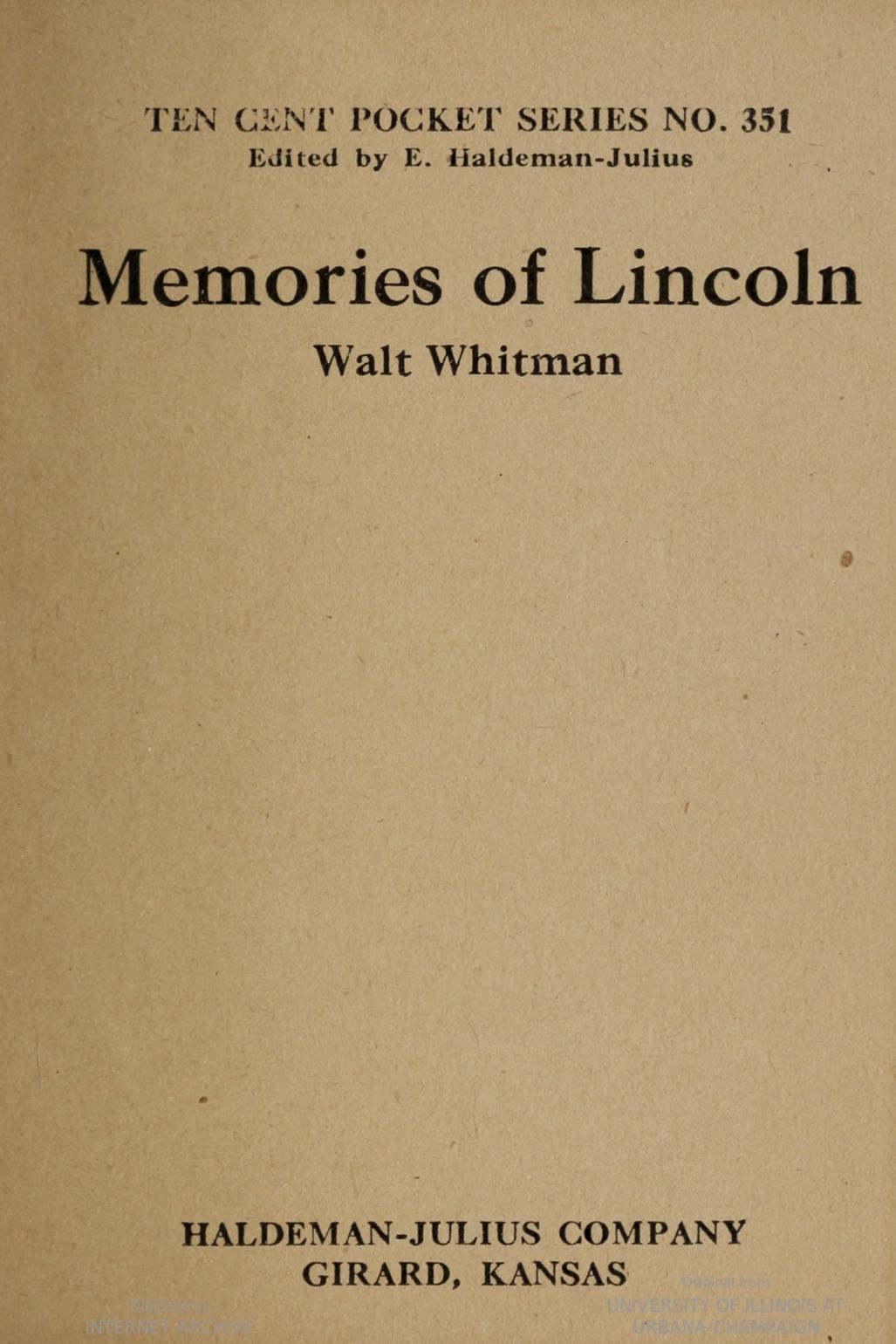
TEN CENT POCKET SERIES NO. 351
Edited by E. Haldeman-Julius
MEMORIES OF LINCOLN
WALT WHITMAN
HALDEMAN-JULIUS COMPANY
GIRARD, KANSAS
CONTENTS
FOREWORD
I. WHEN LILACS LAST IN THE DOORYARD BLOOM'D
II. O CAPTAIN! MY CAPTAIN!
III. HUSH'D BE THE CAMPS TODAY
IV. THIS DUST WAS ONCE THE MAN
LYRICS OF THE WAR
BEAT! BEAT! DRUMS!
COME UP FROM THE FIELDS FATHER
THE WOUND-DRESSER
SPIRIT WHOSE WORK IS DONE
ASHES OF SOLDIERS
PENSIVE ON HER DEAD GAZING
CAMPS OF GREEN
He knew to bide his time,
And can his fame abide,
Still patient in his simple faith sublime,
Till the wise years decide.
Great captains, with their guns and drums.
Disturb our judgment for the hour,
But at last silence comes;
These all are gone, and, standing like a tower,
Our children shall behold his fame.
The kindly-earnest, brave, foreseeing man,
Sagacious, patient, dreading praise, not blame,
New birth of our new soil, the first American.
JAMES RUSSELL LOWELL
FOREWORD
Whitman did not subject Lincoln to the literary but to the human motive.Lincoln does not become a literary figure by his touch. Does not becomea man in a book. After Whitman is done with him Lincoln still remainsLincoln. No way reduced. No way aggrandized. Only better understood. Hisbackground does not become a book. His background remains what it was.Remains life. Generic life. As life is where life finds life at theroot. I may let Whitman put in a word for himself. Whitman said to me ofLincoln:
"Lincoln is particularly my man—particularly belongs to me;yes, and by the same taken I am Lincoln's man: I guess I particularlybelong to him: we are afloat in the same stream—we are rooted inthe same ground."
To know the Lincoln of Whitman you want to know the Whitman of Whitman.Whitman was literary. But he was not first of all literary. Or last ofall literary. First of all he was human. He was not the leaves of abook. He was the bone and flesh of a man. Yes, he was that something orother not bone or flesh which is also of a man—which finally is theman. Simply literary analysis can make little out of Whitman. He doesnot yield to the scalpel. He is not to be resurrec